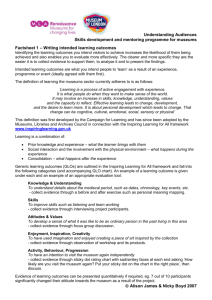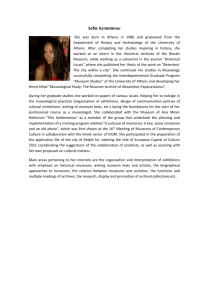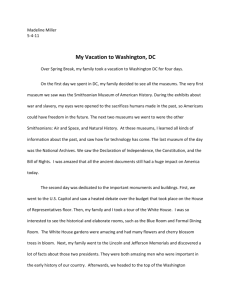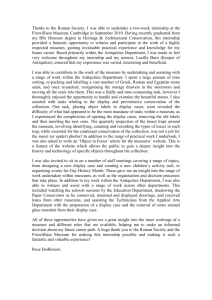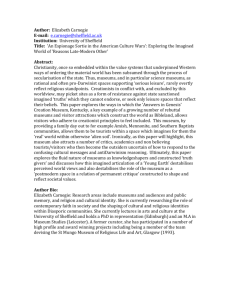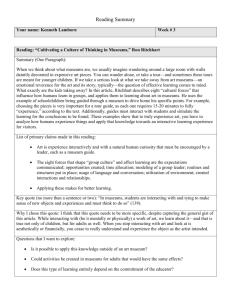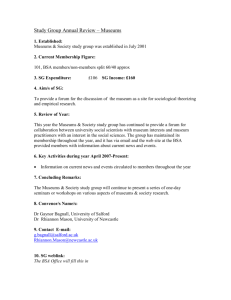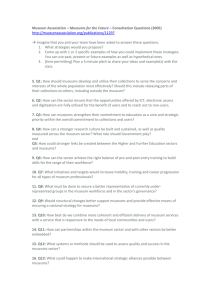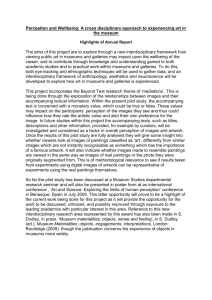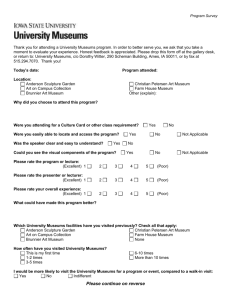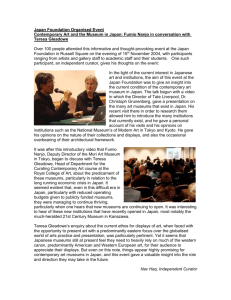RRR Three Chapter Review
advertisement
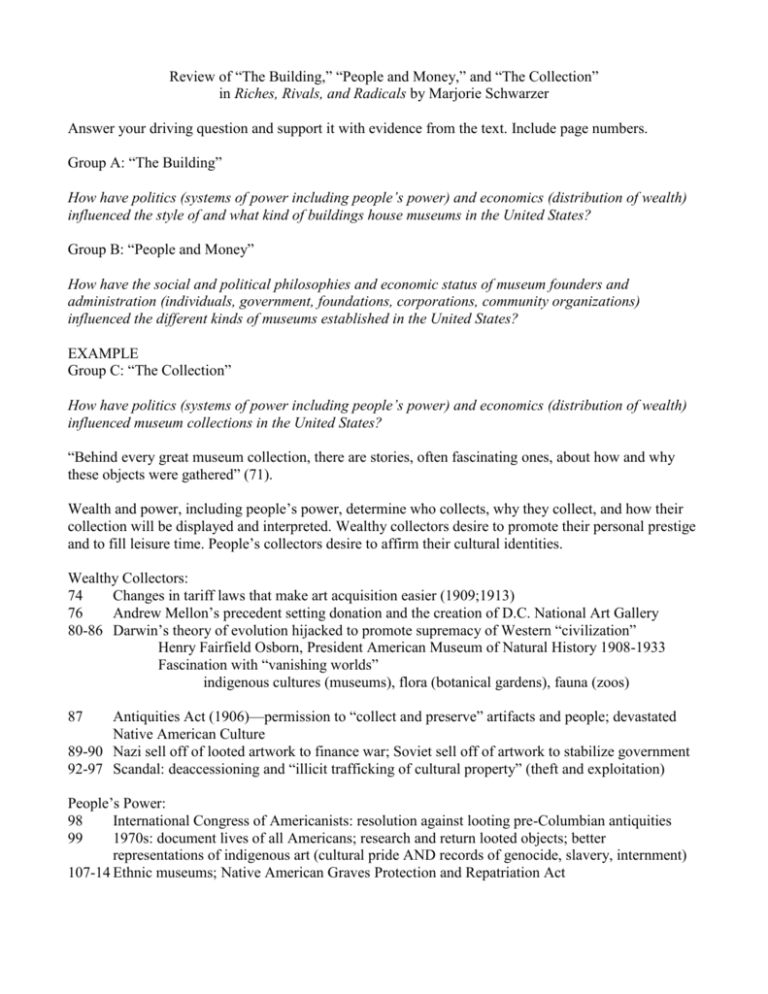
Review of “The Building,” “People and Money,” and “The Collection” in Riches, Rivals, and Radicals by Marjorie Schwarzer Answer your driving question and support it with evidence from the text. Include page numbers. Group A: “The Building” How have politics (systems of power including people’s power) and economics (distribution of wealth) influenced the style of and what kind of buildings house museums in the United States? Group B: “People and Money” How have the social and political philosophies and economic status of museum founders and administration (individuals, government, foundations, corporations, community organizations) influenced the different kinds of museums established in the United States? EXAMPLE Group C: “The Collection” How have politics (systems of power including people’s power) and economics (distribution of wealth) influenced museum collections in the United States? “Behind every great museum collection, there are stories, often fascinating ones, about how and why these objects were gathered” (71). Wealth and power, including people’s power, determine who collects, why they collect, and how their collection will be displayed and interpreted. Wealthy collectors desire to promote their personal prestige and to fill leisure time. People’s collectors desire to affirm their cultural identities. Wealthy Collectors: 74 Changes in tariff laws that make art acquisition easier (1909;1913) 76 Andrew Mellon’s precedent setting donation and the creation of D.C. National Art Gallery 80-86 Darwin’s theory of evolution hijacked to promote supremacy of Western “civilization” Henry Fairfield Osborn, President American Museum of Natural History 1908-1933 Fascination with “vanishing worlds” indigenous cultures (museums), flora (botanical gardens), fauna (zoos) 87 Antiquities Act (1906)—permission to “collect and preserve” artifacts and people; devastated Native American Culture 89-90 Nazi sell off of looted artwork to finance war; Soviet sell off of artwork to stabilize government 92-97 Scandal: deaccessioning and “illicit trafficking of cultural property” (theft and exploitation) People’s Power: 98 International Congress of Americanists: resolution against looting pre-Columbian antiquities 99 1970s: document lives of all Americans; research and return looted objects; better representations of indigenous art (cultural pride AND records of genocide, slavery, internment) 107-14 Ethnic museums; Native American Graves Protection and Repatriation Act
